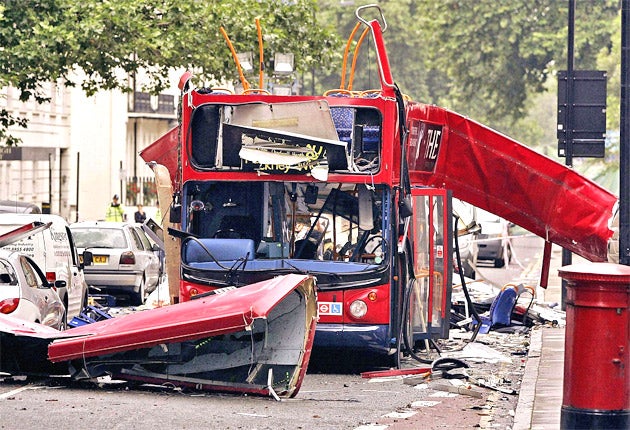We're foiling 7/7-size plot every year, says counter-terror chief as he warns of rise in smaller groups

Counter-terror teams are foiling a plot as big as the July 7 attacks every year, a senior police officer has revealed.
Deputy Assistant Commissioner Stuart Osborne also said the threats against the UK are constantly changing and Islamic extremists are now planning in smaller groups in a bid to avoid detection.
He said: "On average we've probably had about one potential attack planned with an intent to create something similar to July 7 every year.
"The UK threat as we stand today remains at substantial, which means that a terrorist attack remains a strong possibility and could occur without warning."
Mr Osborne, who is senior national co-ordinator for counter-terrorism, said extremists are returning from abroad wanting to mastermind plots in small groups.
This follows the foiling of large scale plans such as the plot to blow up passenger jets with bombs disguised as soft drinks in 2006, and more recently a plan led by three men from Birmingham to set off up to eight ruck sack bombs in crowded areas.
Mr Osborne said: "Some who have been trained actually are becoming quite self-motivated, they are beginning to plan in small groups which are hard to detect," he said.
"There is no doubt that the big sophisticated 9/11 or 7/7 type plots are much harder to organise, they did need a lot of overseas direction, and some of the al Qaida leadership have said that's good if you can do it, but if not any attack whatever you can do at whatever size is useful.
"We are seeing more small groups getting together at shorter notice and more people wanting to do things without that broader command and control."
Al Qaida remains the greatest terror threat to Britain, he said, and the most recent trend is for would-be jihadists to travel to Syria for training and to get involved in fighting.
Domestically, there is also a concern that terrorists will learn "criminal tradecraft", again making their activities harder to detect.
This came as new figures revealed the number of terror arrests had risen by 60% in the year to September 2012.
A total of 245 people were held on suspicion of terrorism-related offences in the period, compared with 153 in the previous 12 months, the Home Office said.
PA
Subscribe to Independent Premium to bookmark this article
Want to bookmark your favourite articles and stories to read or reference later? Start your Independent Premium subscription today.
